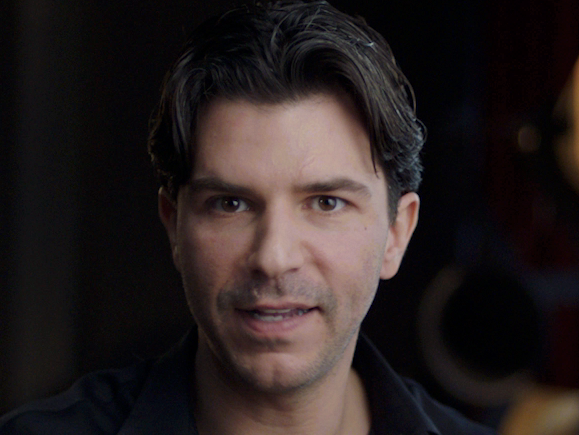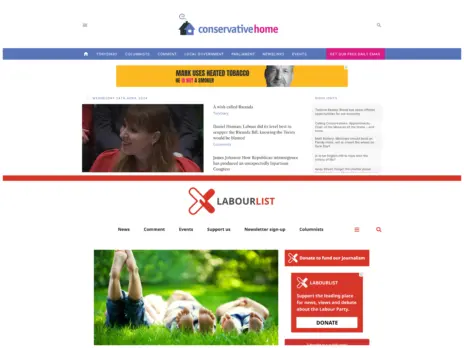
The team behind a Dutch reader-funded news website has launched a campaign aiming to raise $2.5m for a new global English language site.
De Correspondent, which launched in 2013 after a crowdfunding campaign that raised $1.7m from 19,000 founding members, will become The Correspondent in the UK.
Its founding editor, Rob Wijnberg, says the news industry must “rethink the way we do journalism in a way that fosters trust instead of sows even more distrust” in the age of so-called “fake news” and disinformation.
De Correspondent ‘s focus on longer-term structural developments, instead of covering the daily news cycle, has seen its member base grow to more than 60,000 people, each of whom pay £60 per year to access its content.
The new English-language site will run a pay-what-you-can membership
Wijnberg told Press Gazette: “At The Correspondent our promise is to be an antidote to the news, meaning we focus on the foundational, the structural, the developing instead of the incidental or sensational or exception.
“That’s how we got started five years ago and that has resonated a lot.”
The Correspondent has been billed as a platform “building a movement for unbreaking news” that could “redefine what news is about, how it’s made, and how it’s paid for”.
It follows the “slow news” phenomenon that former BBC News director James Harding has founded his Tortoise Media venture on.
Wijnberg (pictured) said distrust in journalism worldwide has grown since De Correspondent began. “It was already pretty bad, but it has gotten worse.
“So the need to rethink the way we do journalism in a way that fosters trust instead of sows even more distrust is even more important.
“Also I think we need to think harder and also change what we’re doing a little bit more fundamentally in order to do that instead of just thinking fake news is spreading distrust or people are cynical so we can’t do anything about it.
“It’s pretty common in a lot of media circles to blame the audience instead of what can we do to change it.”
The Correspondent’s model is based around its members, with journalists able to put out a call on the platform for readers with expertise or knowledge on the topic they are planning to write about, enabling a level of collaboration that means members can follow the writer’s research and learning curve from beginning to end.
Its journalists report according to themes, such as ageing, migration and non-human life, instead of instead more traditional beats such as sport, health or politics in a specific country.
Each story begins with a mission statement in which a correspondent will lay out what they plan to write about and why, asking for help over the coming weeks, months and years.
“The metaphor we use is the news tells you about the weather, we try to tell you about the climate – literally but also metaphorically,” Wijnberg said.
The Correspondent will be based in New York. Wijnberg hopes to raise $2.5m in 30 days to support the venture after launching a crowdfunding campaign today.
In the first 12 hours of the campaign, more than 4,500 people have become founding members, raising nearly £230,000.
If successful, the platform will launch in spring 2019 with around 12 to 15 staff members internationally, including five full-time correspondents and other editorial roles including a managing editor, a picture editor and a fact checker, plus a number of freelances.
The project has received backing from a number of high-profile supporters, including former Guardian editor Alan Rusbridger, NY University journalism professor Jay Rosen and Wikipedia founder Jimmy Wales.
Wales said Wikitribune wanted to move away from the perception that journalists were “above” the community supervising their work.
Asked why The Correspondent will be different, Wijnberg said his website is more of a “two-way street”, whereas Wikitribune is more community-focused.
“A big difference is that we see both parties – the journalist and the reader – as equally important,” Wijnberg said.
“It’s not that we think the reader is more important than the journalist or the journalist is more important than the reader. It’s a collaboration.
“You need both because journalism is a profession… But the reader potentially has all kinds of expertise that can help the journalist do their job, because who knows more about what is going on in education than 1,000 teachers and students?”
The website is completely free of advertising. In its ten principles, The Correspondent sets out that its business model is about “providing you with quality journalism, not selling your attention to advertisers”.
Wijnberg said he had noticed a huge change in attitude towards ad-free and reader-funded or membership models over the past five years.
“First of all the market share of platforms like Google and Facebook has only increased so it’s even harder for traditional media to rely on ads, that’s one [reason].
“But also it’s not just the economics, it’s also because of the negative side effects that people have grown more conscious of – negative side effects like if you fund your journalism with ads then the incentive for making it more clickbaity and more sensational ‘headliney’ is greater because you want to attract as many eyeballs and clicks as possible, because that’s your model.
“Then people see more and more that the clickbait fosters the distrust. ”
Wijnberg said the Dutch website will change from a fixed-fee membership model to the pay-what-you-can model of the English-language website if it proves successful.
Wijnberg said he prefers the new model because allowing people to decide what their fee should be shows trust in them, fulfilling the website’s mission that everything it does is “optimising our journalism for trust”.
He said it is also more inclusive, adding: “It doesn’t exclude anybody from our journalism or becoming a member of our platform because of their purchasing power. Anybody who can afford any amount can join our platform… we like the fact that it’s kind of a system of solidarity.
“If you can afford to pay a little more then you keep our journalism accessible for people on a tighter budget.”
Readers can send links to their non-member friends and family, who will be able to view the article through the link but not view any of the other content in what Wijnberg compared to a “soft paywall”.
Picture: The Correspondent
Email pged@pressgazette.co.uk to point out mistakes, provide story tips or send in a letter for publication on our "Letters Page" blog






